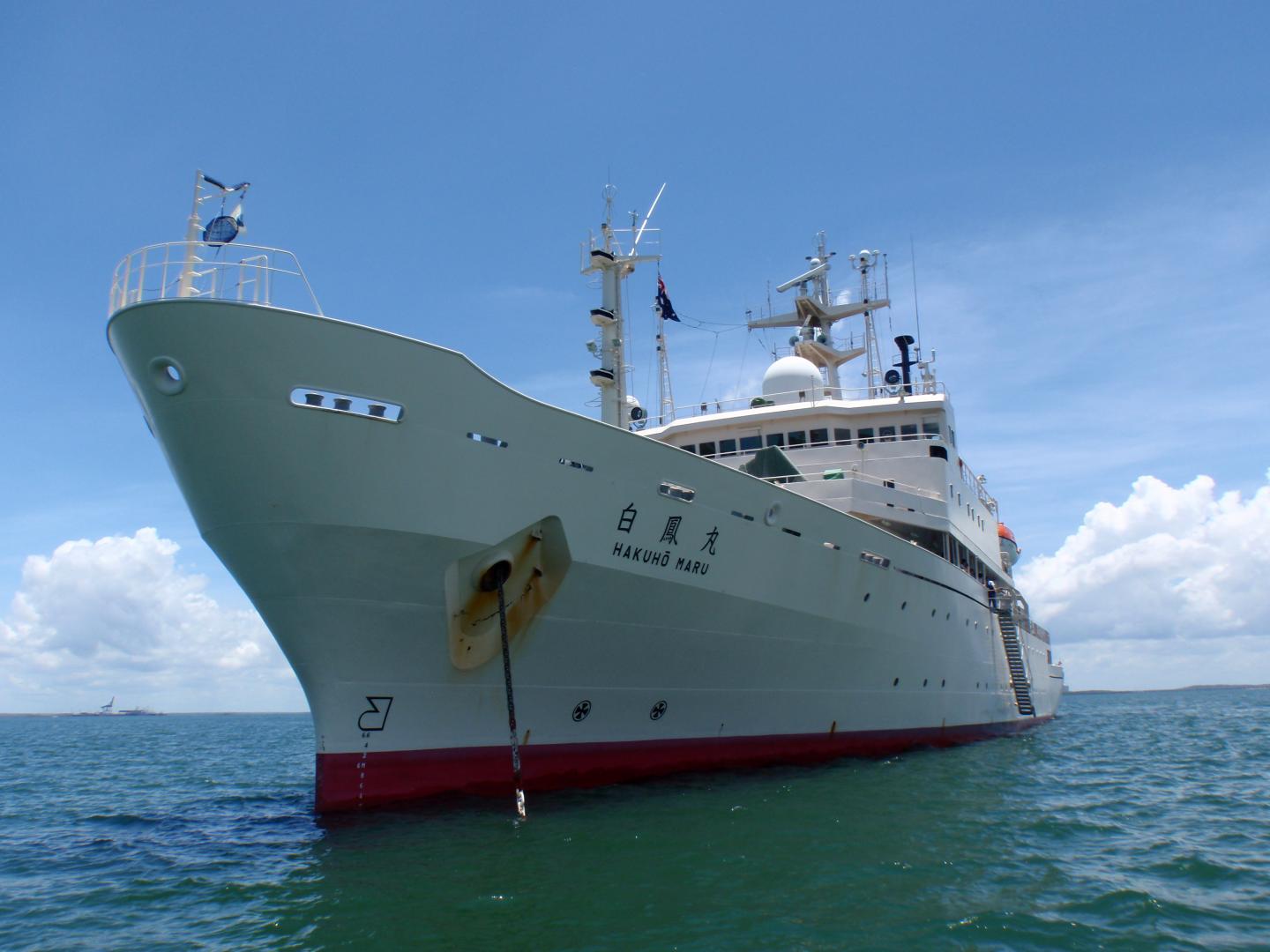
Credit: Prof. Yusuke Yokoyama, the University of Tokyo
By using marine sediment cores from Northwestern Australia, a Japanese team led by National Institute of Polar Research (NIPR) and the University of Tokyo revealed that the global ice sheet during the last ice age had changed in shorter time scale than previously thought. This study was published on May 10 in the journal Scientific Reports.
Knowledge regarding the nature of past climate variability is essential for understanding current climate change and providing context for interpretation of model results. Especially, past ice-sheet variability provides an important insight of future ice-sheet and sea-level change. During the last ice age, continental ice sheets reached their maximum volume approximately 20,000 years ago, resulting in a large drop in global sea level. Therefore, ice-sheet dynamics may be inferred from the sea-level history.
However, there are few places on earth appropriate for investigating past sea-level change, and different locations records conflicting information. The main problem is that local elevation changes can affect how each location records the history of sea-level change. To address this issue, the team ventured to the Bonaparte Gulf in Northwestern Australia, which is a far-field from the locations of past ice sheets. The weight of an ice sheet deforms the Earth’s crust, causing proximal depression and distal bulging (GIA: glacial isostatic adjustment). The gently sloping sea floor in the Bonaparte in relatively free of the effects of this crustal deformation, making it an ideal location to investigate past sea-level change.
This sea-level reconstruction was accomplished through a combination of a transect of ten sediment cores, collected during cruise KH11-1 of the R/V Hakuho-Maru (Figure 1), paleo-tidal reconstruction, and GIA modeling. The sedimentary environment of the Bonaparte Gulf changed with sea level, allowing for paleo-water depth information to be extracted from the network of sediment cores. The timing of these water depth changes was constrained by over 100 radiocarbon dates to obtain a local history of relative sea-level change. Paleo-tidal modeling clarified the uncertainty in this record, which was converted into a global ice-volume history for the last ice age by accounting for isostatic effects.
Results indicate that the trend of decreasing sea level was briefly interrupted by a period of stability from about 26,000 to 20,000 years ago during the last ice age (Figure 2). A geologically rapid, 10-m global decrease in sea level then occurred over about 1,000 years. “This sea-level history reveals short-period ice-sheet dynamics during the last ice age, which the current generation of climate models have not considered” said the first author, NIPR scientist Takeshige Ishiwa. “A better understanding of ice sheet dynamics will improve prediction of future climate change by model simulations.”
###
Media Contact
Public Relations Section, NIPR
[email protected]
Original Source
https:/
Related Journal Article
http://dx.




